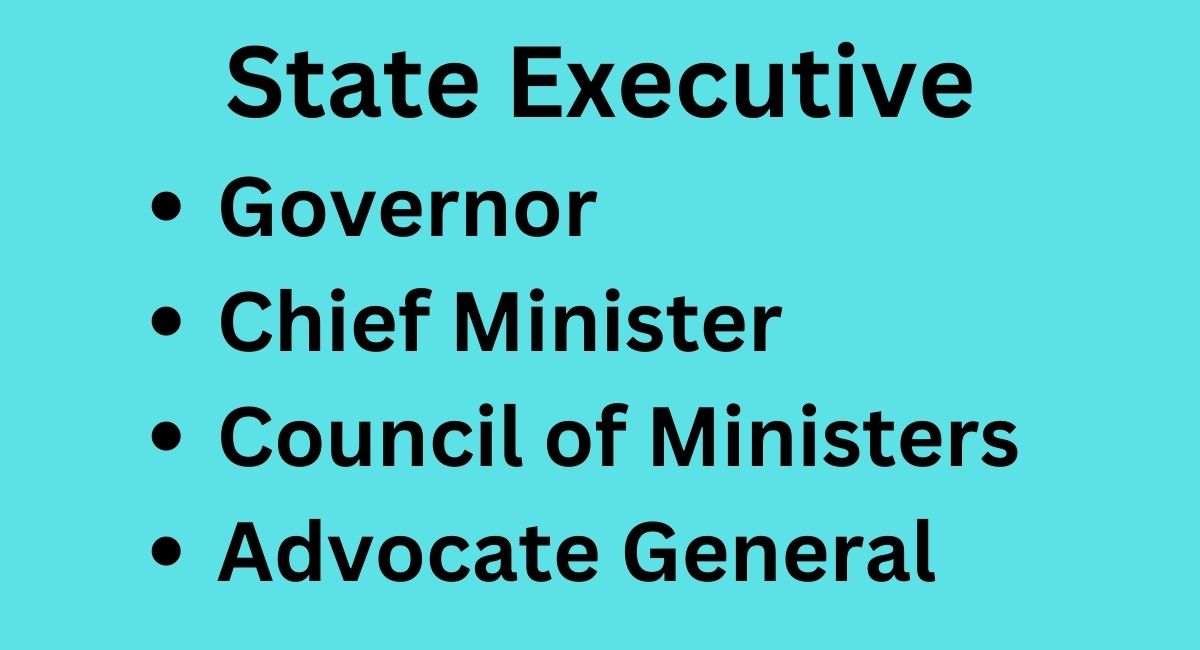The state executive is one of the most important components of any democratic system. It is responsible for the day-to-day administration of the state and plays a crucial role in implementing the policies and laws passed by the legislative assembly. In this article, we will discuss the state executive in and its significance.

Table of Contents
Composition of State Executive
The state executive is composed of the Governor, the Chief Minister, the Council of Ministers, and the Advocate General. Let’s take a closer look at each of these components.
Governor
The Governor is the head of the state and represents the central government at the state level. The Governor is appointed by the President of India and holds office for a term of five years. The Governor’s role is largely ceremonial, but they do have certain powers, such as the power to appoint the Chief Minister, dissolve the legislative assembly, and make certain appointments.
Chief Minister
The Chief Minister is the head of the state government and is responsible for the day-to-day administration of the state. The Chief Minister is appointed by the Governor and holds office as long as they enjoy the support of the majority of the members in the legislative assembly. The Chief Minister has several powers, such as the power to allocate portfolios to the Council of Ministers, recommend the appointment of judges, and advise the Governor on matters related to the administration of the state.
Council of Ministers
The Council of Ministers is a group of ministers who assist the Chief Minister in the administration of the state. The Council of Ministers is appointed by the Governor on the advice of the Chief Minister and holds office as long as they enjoy the support of the majority of the members in the legislative assembly. The Council of Ministers has several powers, such as the power to make policies, implement laws, and approve budgets.
Advocate General
The Advocate General is the chief legal advisor to the state government and is responsible for providing legal advice and representing the state government in legal matters. The Advocate General is appointed by the Governor and holds office as long as they enjoy the support of the majority of the members in the legislative assembly. The Advocate General has several powers, such as the power to appear before courts and tribunals on behalf of the state government and advise the state government on legal matters.
Powers and Functions of the State Executive
They several powers and functions that are critical to the functioning of the state government. Let’s take a closer look at some of these powers and functions.
Legislative Powers of State Executive
They can make laws and regulations on matters that fall within the state’s jurisdiction. The state executive can also introduce bills in the legislative assembly and make amendments to existing laws.
Executive Powers
They are responsible for the day-to-day administration of the state. They are responsible for implementing policies, managing state finances, and ensuring the welfare of the citizens.
Judicial Powers
The state executive has judicial powers, which means they can appoint judges and magistrates to the state’s judiciary. The state executive is also responsible for setting up and managing tribunals and other bodies that are responsible for resolving disputes.
Emergency Powers
They have emergency powers, which means they can declare a state of emergency in the state if the situation demands it. During a state of emergency, the state executive has the power to suspend certain civil liberties, such as the right to assembly and the right to free speech, in the interest of maintaining law and order.
State Executive : Conclusion
In conclusion, the state executive is an important component of any democratic system, and understanding its composition, powers, and functions is critical to the functioning of the state government. As an SEO professional, it is important to understand the role of the state executive in order to develop
Important Links